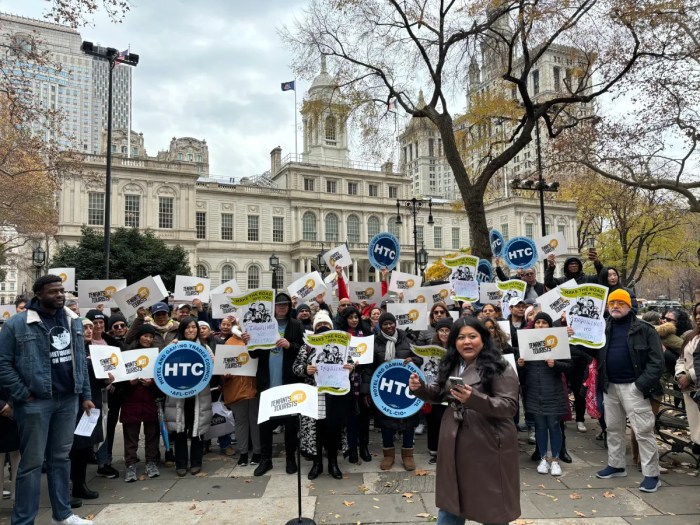By Tom Momberg
State Assemblyman David Weprin (D-Fresh Meadows) said the Legislature is making headway on negotiations to pass a $143 billion budget before New York’s new fiscal year begins April 1.
He said nobody is trying to oust the unilateral changes Gov. Andrew Cuomo put forth for the education system, but the policy specifics probably would be different from what was submitted.
The governor said he would not sign off on a budget that does not encompass his proposed ethics reforms, but the governor’s suggested education reforms are hindered by budget negotiations in both houses.
The state Assembly, which supports the DREAM Act that would provide tuition assistance to illegal immigrants, will not see the initiative to fruition any time soon. Neither will the state Senate see the Education Tax Credit passed immediately, though each were initially proposed in the executive budget, which called for a $1.1 billion increase to school spending.
Neither initiative succeeded last year. And again on Tuesday, Cuomo announced that they were being dropped from budget negotiations. They could still be passed during the regular legislative session, however.
There are still plenty of education initiatives to be discussed in budget talks this week.
Cuomo’s communications director, Melissa DeRosa, said that if the houses don’t agree to include the governor’s proposed education reforms in the final budget — alterations to the state teacher evaluation system, tenure reform, the state’s ability to take over failing schools, new scholarships to attract teachers and new faculty performance bonuses — then he would cap an increase in school spending to $375 million.
“If those reforms are passed, the governor will support a significant funding increase,” DeRosa said in a statement Monday. “The governor believes these changes will be transformative to our education system.”
It’s unclear whether New York City mayoral control of schools will be extended or Cuomo’s proposed charter school cap will be increased, which the governor’s office said might have to be addressed outside of the budget process. Like the DREAM Act and the Education Tax Credit, the issues could be taken up during the regular legislative session.
“We’re negotiating. I’m still confident we’ll meet the budget deadline,” Weprin said. “I also think these education policies will continue to be tweaked after they’re implemented,” he said.
Cuomo has touched off the most controversy over his school receivership model in which the state would assign an outside organization or charter school to take over failing schools in New York City. Mayor Bill de Blasio has since introduced new policies for his Renewal school program to strategically examine the administrative performances in the city’s 94 lowest-performing schools.
As a result of de Blasio’s efforts, budget negotiations may involve significant changes to that aspect of Cuomo’s reforms, which Weprin said he thinks the final budget will reflect.
“Local input and local control over schools are important, and the Legislature recognizes that,” he said.
Sen. Joe Peralta (D-East Elmhurst) said there is always wiggle room in budget negotiations.
“I think (Cuomo) just wants to seem as if he’s standing firm on this,” he said. “But the Assembly has stood firm, making sure that teachers’ concerns are being listened to.”




































